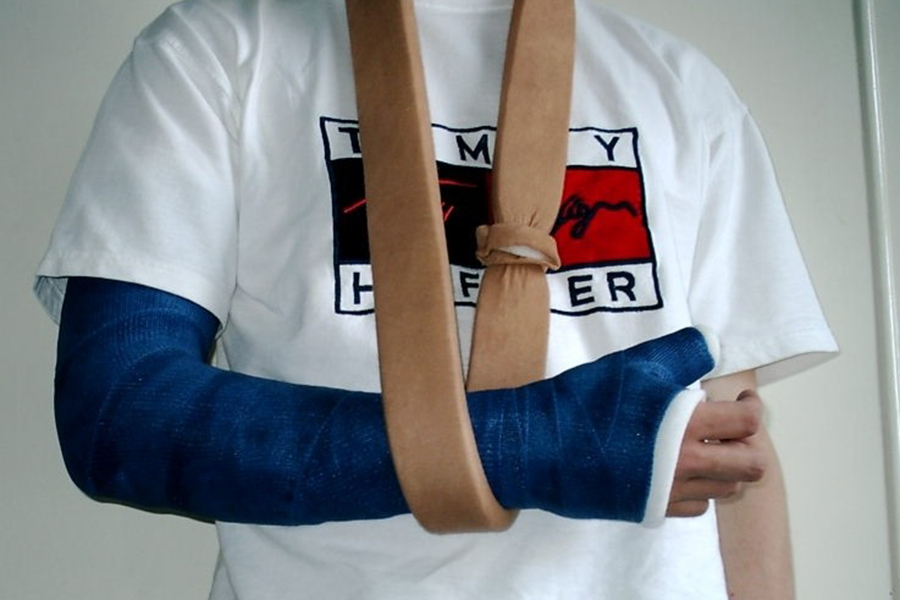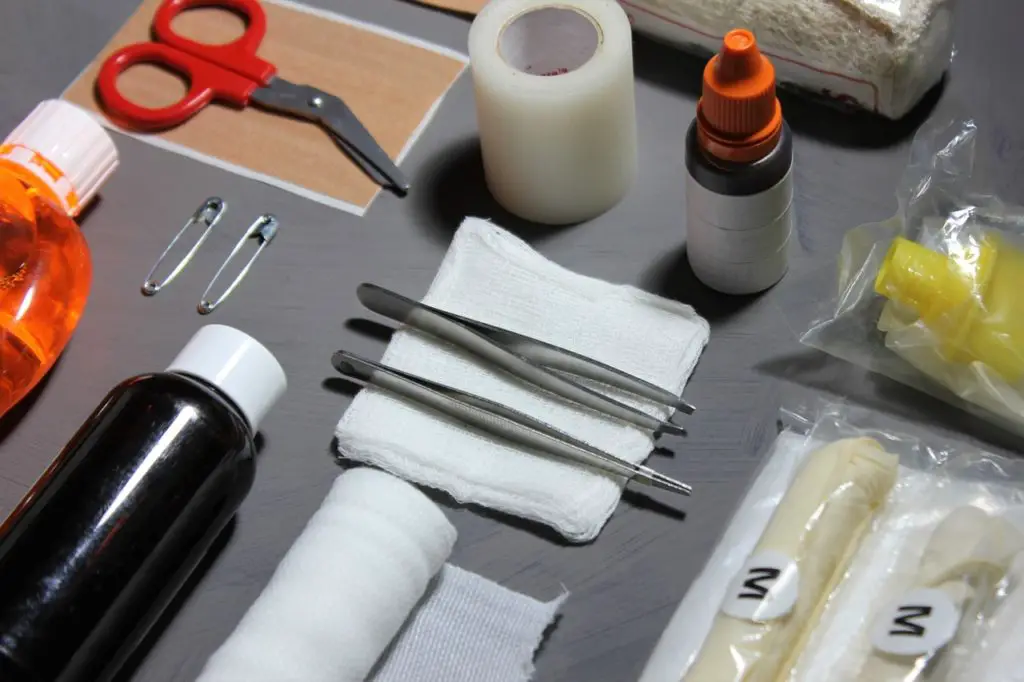We all have known someone that has needed a cast. If it was someone else’s, you may remember the excitement of getting to sign your name or draw a picture on it. If it was your own, then you’ll remember how irritating and annoying it was to live with it. In this article, I’ll answer some of your questions about how to care for a cast and give you some tips on how to survive living with one.
How do you relieve itching under a cast?
If you have an itch that just has to be scratched, then perhaps you can try these tips. You can try to locate the itch from the outside of the cast and tap on it. You can also try and take a blow dryer and blow cool air inside of the cast to help relieve the itching. Avoid putting anything inside your cast to scratch your itch, such as pencils, rulers, sticks, hangers, or anything else sharp. These can tear the skin which will be prone to infection.
How can I make my cast more comfortable?
If the cast is continually feeling uncomfortable and tight, especially in the first few days, it’s most likely due to swelling. The best things to do for this will be to keep the cast elevated as much as possible, wrap the cast with an ice pack while assuring that the cast is able to stay dry, and make sure to keep the fingers or toes moving on the casted limb.
How to sleep with a cast?
It’s undoubtedly more difficult to sleep while wearing a cast. The extra weight and mass of a cast may make you feel much warmer while you’re attempting to sleep. You should dress in light clothing and be conscious of how many blankets you will be sleeping under. Once you lay down, lay on your back while using pillows and blankets to keep the cast elevated. You can also use pillows and blankets to keep yourself from rolling around in your sleep. Depending on where your cast is, you’ll probably find that sleeping on your back is the best position to sleep in.
Why does my cast smell so bad?
Cast odor is a common problem, especially amongst children and athletes. The root cause of the odor is due to the cast, and the skin underneath, getting wet. This may be caused by the individual sweating, by playing sports, or just playing as a kid. However, it is possible that the smell is a sign of infection and should be checked out by a professional if an infection is a possibility.
Keeping your cast dry
One of the hardest parts of having a cast is figuring out how to take a shower with the cast on. You may choose to avoid splashing water altogether by opting for a bath. Or you can take measures to keep your cast dry by using a trash bag and some tape. If you can afford it, buying a cast cover is a great option. You can buy a reusable one that is pretty heavy-duty or a disposable one that is easier to keep on hand when you’re traveling.
How do you get the moisture out of a cast?
If you’ve been sweating excessively, got caught in the rain, or have any other reason for getting the cast wet, there are a few steps you can take. You can use a hairdryer set to a cool setting to help dry out the moisture. If the moisture has already set in, you can apply a small amount of baking soda to the outside of the cast to help absorb the moisture. There is also a product called a Castcooler that you could consider. This is a product that wraps around the cast and is hooked to your vacuum cleaner. It helps to cool the skin while pulling the moisture out from under the cast.
Does a wet cast need to be replaced?
Whether or not a wet cast will need to be replaced depends on how wet the cast has become, and how extensive the break under the cast is. If your cast has become damp from sweating, then it may not need to be replaced. If it has developed an excessive odor, there appears to be an infection, it becomes soft, or it is unreasonably damp then yes, it will need to be replaced. On rare occasions, the cast is holding the broken bones in such a way that the cast will not be able to be removed. However, this is rare but will have to be discussed with the physician in charge. The doctor who applied it will be able to examine the cast and decide on the best course of action.
How do I clean an arm or leg cast?
If you have a plaster cast then you can take a damp, not soaking wet, towel and gently wipe it down. Only use a damp towel and no other cleaning products. If you have a fiberglass cast then you will be able to get a damp towel and wipe it down as well, but you may use soap on a fiberglass cast if necessary. Prevention is always the best option, so if you’re going to be in a situation where you know the cast will get dirty, consider using a disposable cast cover.
How long do you generally keep a cast on for?
Arm or leg casts generally need to stay on for 4 to 12 weeks. Adults will typically be able to have their cast removed after six weeks, while children will typically have their cast, for the same fracture, removed at four or five weeks. Some bones heal faster than others, and the type of fracture may determine the healing speed. If it is a slow healing fracture it may take up to twelve weeks to fully heal.
Does a broken bone hurt while in a cast?
You will have some initial discomfort from having a cast put on and the swelling within the first few days. Once the arm or leg has been immobilized the pain will decrease. Movement of the fracture is what will cause most of the pain, once it is unable to move, much of the pain will fade away.
Signs that your broken bone is healing
Decreased pain is one of the first signs that your bone is nearly finished repairing itself. Being able to move your cast and do normal things without pain radiating from the fracture is a reassuring sign that the fracture is healing. Once your range of motion begins to increase it is another indication that your time in a cast is coming to an end. Range of motion will be greatly decreased while a bone is broken, being able to move the area that was broken, and any further joints will be a sign that the fracture is mending itself. If you have any bruising outside of the cast that begins to subside, it is another excellent sign showing that the fracture is healing.
General tips for living with a cast
It’s an unfortunate nuisance, but you’ll need to make some life changes to make things easier on yourself with a cast. If you’re going out, wear clothing that fits over the cast easily, tank tops for arm casts, baggy shorts for leg casts. Make sure to keep the cast dry, especially when you’re showering. This will help prevent some of the itching, and if you are able to keep it dry you will be much less likely to experience an odor. You will also need to plan around your daily activities such as driving, writing, and eating to name a few. You may have to consider asking a friend or family member to help you with these tasks.
- Where comfortable and loose clothing
- Keep the cast dry and dirt-free
- Don’t stick anything inside your cast to relieve an itch
- Plan ahead for tasks that will require assistance and have a friend or family member help
- If you’re showing signs of infection, have open sores, or increasing pain or swelling, call a doctor!




